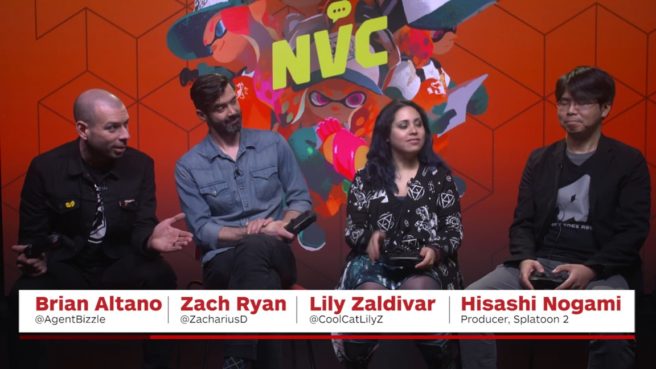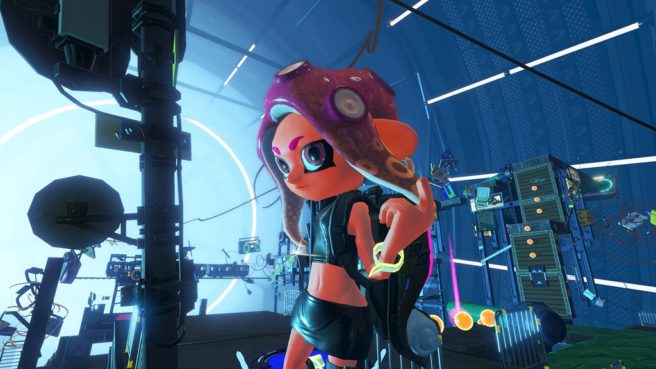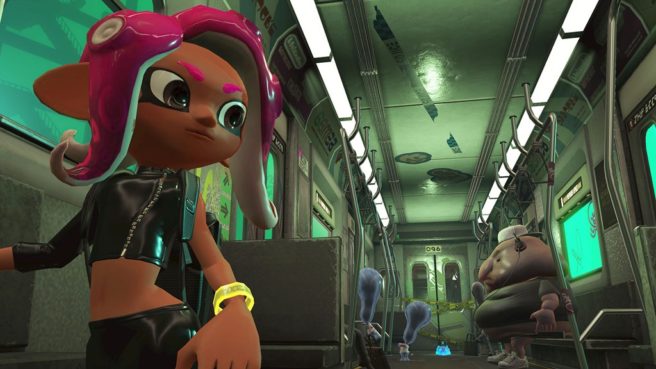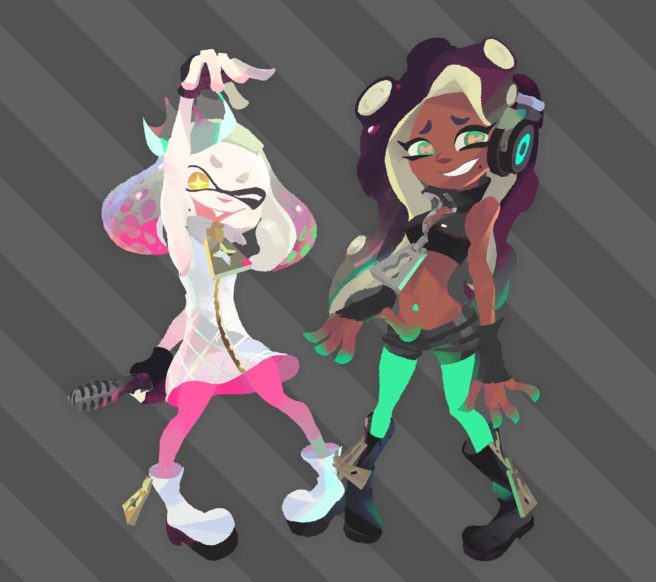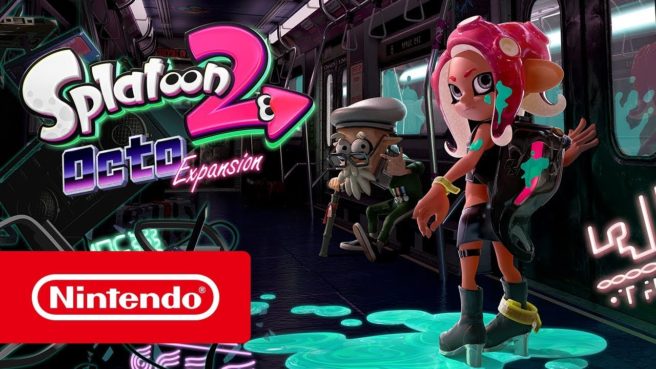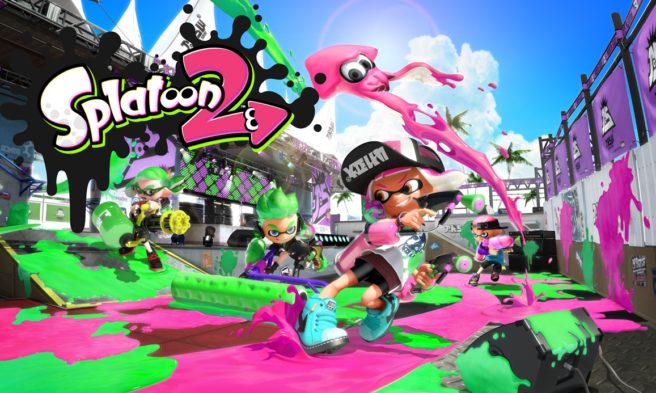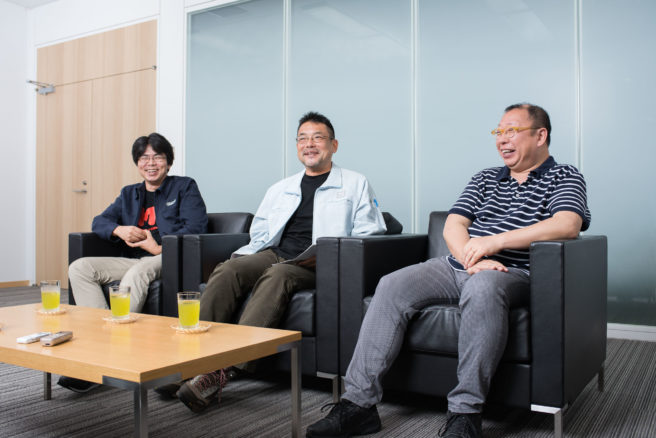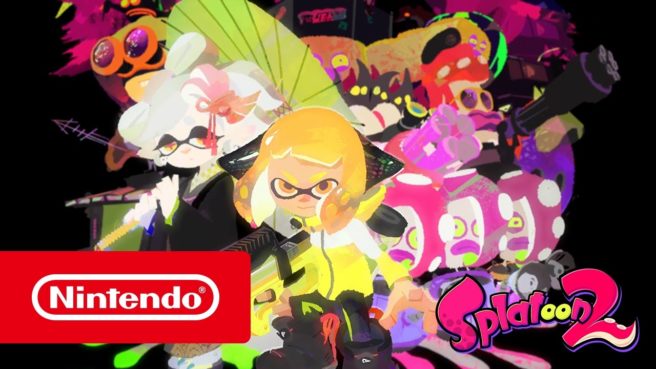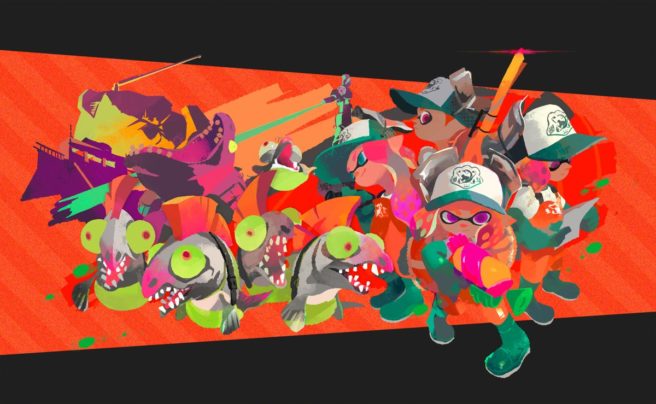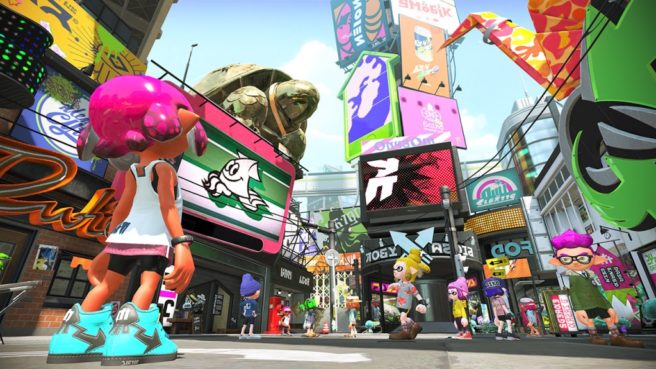Video: Splatoon 2 producer Hisashi Nogami plays Salmon Run
Posted on 6 years ago by Brian(@NE_Brian) in Switch, Videos | 0 comments
Last week, IGN had Splatoon 2 producer Hisashi Nogami stop by to play a round of Salmon Run. You can see how the team did in the video below.
More: Hisashi Nogami, Splatoon 2
Video: Hisashi Nogami on Splatoon 2 and the Octo Expansion
Posted on 6 years ago by Brian(@NE_Brian) in Switch, Videos | 0 comments
IGN published a new interview today with Hisashi Nogami, the producer of Splatoon 2. Along with some general talk, Nogami discussed the Octo Expansion in detail. View the interview below.
More: Hisashi Nogami, interview, Splatoon 2
Splatoon 2 producer on the darker tone of Octo Expansion
Posted on 6 years ago by Brian(@NE_Brian) in News, Switch | 0 comments
With the upcoming Octo Expansion for Splatoon 2, Nintendo is going for something different. The setting is an underground section of the world, complete with a darker tone to match.
Splatoon 2 producer Hisashi Nogami spoke about the tone of Octo Expansion in an interview with GameSpot. He shared the following on that front:
More: Hisashi Nogami, interview, Splatoon 2, top
Splatoon 2 producer on whether Pearl and Marina know they’re in a game and more
Posted on 6 years ago by Brian(@NE_Brian) in News, Switch, Wii U | 0 comments
Game Informer published two new interviews with Splatoon 2 producer Hisashi Nogami today. Aside from one discussion that was more on the serious side, the second was off-beat and was more about lore. Topics in the second interview include whether Pearl and Marina know they’re in a game, what happens to Inklings as they move through ink, and how they can’t go in water.
We’ve rounded up the comments about these topics below. Game Informer has the interview in full here.
More: Hisashi Nogami, interview, Splatoon, Splatoon 2
Splatoon 2 producer on the decision to release single-player DLC, having the Inklings in Mario Kart and Smash Bros.
Posted on 6 years ago by Brian(@NE_Brian) in News, Switch | 0 comments
At GDC last week, Game Informer spoke with Splatoon 2 producer Hisashi Nogami. Nogami talked about why the team decided to make single-player DLC as well as what to expect from the expansion. He also touched on what it’s like seeing the Inklings in Mario Kart and Smash Bros.
We’ve highlighted some excerpts from the interview below. You can read the full discussion on Game Informer here.
More: Hisashi Nogami, interview, Splatoon 2, top
Splatoon 2 dev on how long it took to develop, why it took so long for changing gear in-between rounds, music talk
Posted on 6 years ago by Brian(@NE_Brian) in News, Switch | 12 Comments
Eurogamer published a new interview today with Splatoon 2 producer Hisashi Nogami. Nogami commented on how long it took to develop, why it took so long to allow players to change gear in-between rounds, and creating music / bands.
You can find answers to these comments below. For the full interview, head on over here.
More: Hisashi Nogami, interview, Splatoon 2, top
Nintendo on Mario World / Yoshi’s Island – Yoshi’s creation and having him in a starring role, visual style, more
Posted on 6 years ago by Brian(@NE_Brian) in General Nintendo, News | 3 Comments
Nintendo has translated the full Super Mario World / Yoshi’s Island interview we saw snippets of in Japanese earlier this week. Out of all of Nintendo’s interviews for the SNES Classic Edition thus far, this one might be the most interesting.
Takashi Tezuka, Shigefumi Hino, and Hisashi Nogami were all present to talk about the SNES games. They chatted about how Yoshi came to be, how he ended up getting a starring role in his own title, the visual style for Yoshi’s Island, and a bunch more. We also have the official translation about the original plan to have Mario hitting Yoshi when his tongue sticks out.
Continue on below for the full interview with Tezuka, Hino, and Nogami.
Splatoon 2 devs on improvements and adjustments from the first game, Salmon Run, story, future updates
Posted on 6 years ago by Brian(@NE_Brian) in News, Switch | 19 Comments
Famitsu published a lengthy Splatoon 2 feature this week. Among the coverage was an interview with four of the game’s developers. Art director Seita Inoue, lead programmer Shintaro Sato, director Yusuke Amano, and producer Hisashi Nogami participated in the talk.
The developers weighed in on Splatoon 2’s improvements and adjustments from the first game, the new Salmon Run mode, the story, and future updates. Among the things discussed were Nintendo’s approach to Salmon Run, how Nintendo considered announcing a Splatoon sequel during the first game’s final Splatfest, a tease of more new weapon categories, and more. The developers were even asked if Marina is an Octoling.
You can find a comprehensive summary of important points from Famitsu’s interview below.
More: Hisashi Nogami, Seita Inoue, Shintaro Sato, Splatoon 2, top, Yusuke Amano
Splatoon 2 devs on its competitive nature, Salmon Run talk, more
Posted on 6 years ago by Brian(@NE_Brian) in News, Switch | 1 Comment
Interviews coming out of E3 continue to roll out from E3. The latest one is from Glixel, who spoke with Splatoon 2 producer Hisashi Nogami and programming director Shintaro Sato. The two weighed in on topics such as the game’s competitive nature and Salmon Run.
As usual, we’ve highlighted some of the noteworthy excerpts below. Head on over here for the full interview.
More: Hisashi Nogami, interview, Shintaro Sato, Splatoon 2, top
Nintendo on new IPs, Splatoon’s popularity with players, using leftover ideas in Splatoon 2
Posted on 6 years ago by Brian(@NE_Brian) in General Nintendo, News, Switch, Wii U | 13 Comments
The Verge published some choice quotes from some of the developers at Nintendo, including Shinya Takahashi, general manager of Nintendo’s software division, Nintendo EPD. Takahashi started off by commenting on when it makes sense to introduce a new IP.
He said:
“It’s not just about new characters. It’s also about thinking about how people will accept new systems and gameplay. Sometimes new intellectual property is the best way to introduce that.”
“Whenever we see a new, really fun prototype, there’s always going to be a moment where we think: ‘How do we give the most people the opportunity to play this? Is it something that needs to be in a Mario game, or is this something that feels like it should go in a new direction?’ And that’s a debate that happens every single time.”
